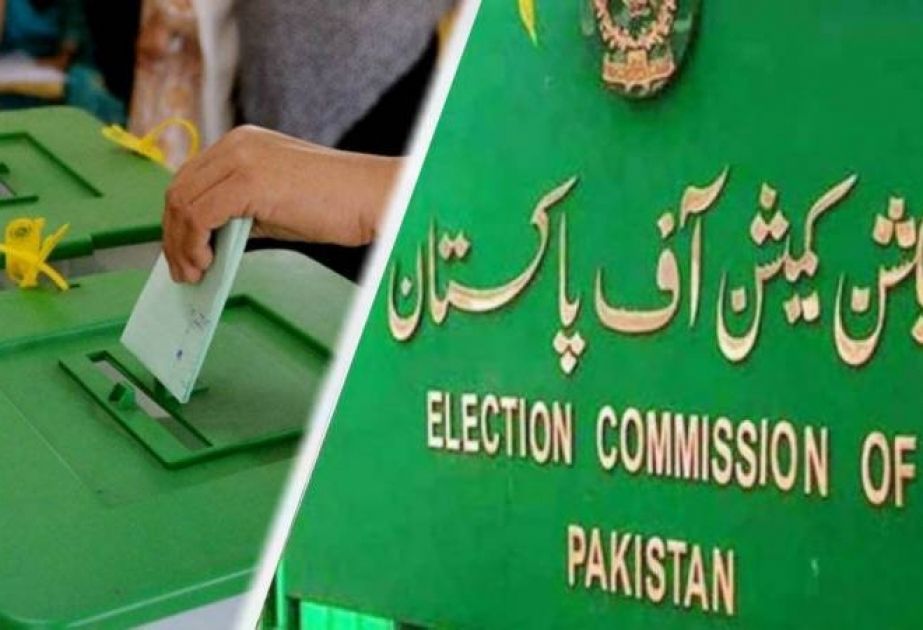Political fervour surrounding elections remains evident with significant political parties

By Sara Nazir
Pakistan, a nation of 240 million with over 128 million eligible voters, is all set to conduct General Elections on February 8, 2024. In greater national interest, it is essential that the maximum number of people come out of their houses and exercise their right to vote for their favourite candidates, who can subsequently represent them in legislative assemblies and the Parliament. Nestled in a complicated political landscape, Pakistan is a democratic, peace-loving, and resilient nation that defies all odds it confronts. This nation, founded on principles of democracy, has a long history of holding elections that exhibit the core principles of political transformation. The continuation of the democratic process illustrates Pakistan's dedication to providing individuals with a forum to express legitimate issues through their elected candidates.
In an effort to demonstrate openness and transparency, the Pakistani Government has invited hundreds of international journalists from twenty different nations to witness and report on the election process. This strategic choice is not merely to alleviate foreign scepticism but to highlight the government's commitment to democratic principles. Some external groups with vested interests recently embarked on a smear campaign on international media forums with support and backing from certain domestic political quarters across Pakistan's political milieu. The fundamental goal of this sinister effort was to degrade Pakistan's reputation and that of its Armed Forces around the globe. This smear campaign, sponsored by those opposed to Pakistan’s growth, will confront a powerful opponent on February 8, when the Pakistani people exercise their democratic right to vote and prove their resilience one more time.
The political fervour surrounding the elections remained evident, with significant political parties such as Pakistan Muslim League (N), the Pakistan Peoples Party (PPP), and the Pakistan Tehreek-e-Insaf (PTI) actively participating in the political campaigns. Traditional political rallies, processions, corner meetings, and public interaction afforded the campaigners an atmosphere for the electoral system, which remains central to Pakistan's democratic values. From a security standpoint, to ensure a free, fair, and peaceful voting process, the government has developed a strong three-tiered security structure, including the Police, Civil Armed Forces, and Armed Forces in their respective tiers.
The demographics, which include a significant number of young people, represent vitality and the potential to foster positive growth. The active participation of youngsters reflects the nation's dedication to diversity and representation. The recurrent transfer of power through democratic methods, as symbolized by Pakistan's forthcoming 24th Prime Minister, strengthens the stability and continuity of the democratic institutions.
The makeup of the National Assembly and the four provincial assemblies—Punjab, Sindh, Khyber Pakhtunkhwa, and Balochistan—will be determined by General Elections. The National Assembly has 336 representative seats, with 266 directly elected by single-member constituencies under the first-past-the-post system. Additionally, 60 seats are reserved for women and 10 for minorities. The allocation of women's reserved seats among parties is proportionate to their province seat total, whereas minority seats are distributed based on each party's overall seat count. Following that, provincial assemblies elect 100 members of the Senate, Pakistan's upper chamber of Parliament. The party or alliance that wins the most seats in the National Assembly gets to choose its leader, who proceeds on to serve as the next Prime Minister.
An interesting assessment report from a Government Institution offers an interesting insight into the likely political scenario following the elections. The survey forecasts that the PML-N will come out as the single largest party, securing approximately 115 to 132 seats in the National Assembly. The estimate indicates to a stronghold for the PML-N in the Punjab Assembly, where it is expected to win around 190 of 297 seats, potentially forming a Government with a controlling two-thirds majority in the entirety of Punjab. Beyond Punjab, the estimate sees the PML-N playing a key role in Coalition Governments in Khyber Pakhtunkhwa and Balochistan. On the other side, the PPP is expected to win 35 to 40 seats, setting itself for control in Sindh. The PTI's independent candidates are expected to win 23 to 29 seats, while the Muttahida Qaumi Movement (MQM), Jamiat Ulema-e-Islam (JUI), Pakistan Muslim League (PML-Q), and Istehkam-e-Pakistan Party (IPP) will play a variety of roles in the National Assembly.
As the country goes to the polls tomorrow, it will not only resist coordinated efforts to malign its image, but it will also elect representatives who will reflect the true concerns of the people in Parliament and other legislative assemblies. The tolerance of divergent opinions is symptomatic of the growth of Pakistan's democratic culture. A strong democracy promotes differed viewpoints, ensuring that each citizen's voice is heard.
Most significantly, the election results will not only shape Pakistan's political landscape but will also have profound implications for stability of the region and Muslim world. The challenging democratic road reflects Pakistan's will to persevere and proclaim its democratic values in the face of difficulties. Through the ballot, Pakistanis will be able to elect members who will voice their real concerns in parliamentary and legislative assemblies, supporting the country's true democracy.
---
The author is a gold medalist in Strategic Studies from Air University Islamabad and currently teaching as visiting faculty in a university based in Islamabad. She regularly writes on South Asian security and strategic issues.
Follow us on Twitter @AzerNewsAz
Here we are to serve you with news right now. It does not cost much, but worth your attention.
Choose to support open, independent, quality journalism and subscribe on a monthly basis.
By subscribing to our online newspaper, you can have full digital access to all news, analysis, and much more.
You can also follow AzerNEWS on Twitter @AzerNewsAz or Facebook @AzerNewsNewspaper
Thank you!
